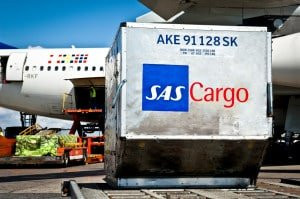ATC Aviation is one of the main players in the US general sales and service agent (GSSA) marketplace and continues to grow.
Last year, it was awarded a contract to represent DHL Aviation’s ACS International GSSA work, and in 2016 it added Air Serbia Cargo across the US, as well as Solar Cargo in the Midwest and West Coast.
In the US, ATC also represents Etihad Cargo, NCA Cargo, Air New Zealand Cargo (above), SAS Cargo, MNG Cargo, Egypt Air Cargo, Air Astana, Air Niugini, CAL Cargo Airlines and Solar Cargo.
ATC has 10 US offices – two in New York, one in Chicago, Dallas, Atlanta, Miami, Washington DC, Los Angeles and Houston.
ATC’s vice president and managing director in the US and head of global compliance, Timothy Pfeil (pictured below) says 2016 has been a “challenging year” and for the US market in general: “I think it is very safe to say that there is no longer a market that is safe from the plague of overcapacity, or declining yields.
“Depending on which set of data you wish to believe, the gross composite yield for global air export from the US to the world, has dropped by nine per cent or so, from a high of approximately $1.63/kg in January, to $1.49/kg as recently as July.
“For ATC, our composite yields have tracked in-line with what CASS and others are showing, and we follow these KPIs very closely. Overall our tonnage growth has performed in-line and slightly above our internal forecasts.”
Pfeil says tonnage has continued to perform well against ATC’s internal forecasts and expectations, however on the whole, it is revenues that are down for several of its partners, and comes in the face of “withering competition” for less overall cargo.
He says this is especially true across the North Atlantic and to the Middle East, the latter of which has witnessed a compounded annual growth in departures from the US of some 24 per cent since 2006.
Pfeil notes: “At the end of 2015, global air cargo volumes from the US were close to where they were at the end of 2008. Seasonally, US air exports in 2016 have mirrored 2009 rather well, but it is evident that performance this year is significantly below any of the previous two years as measured by the US Government, so it would seem to be the case that we are all competing – with more frequent and higher capacity aircraft – for significantly reduced air cargo volumes. I am moderately hopeful that if we track as the industry did in 2009, we will see a strengthening of volumes in Q4.”
In the last 10 years, there has been a lot of GSSA consolidation in the US, and he feels ATC is a good example of the benefits industry consolidation can bring for even the strongest regional GSAs as Platinum Air Cargo’s merger with ATC was a “true win, win for both companies” and the industry as a whole.
“It permitted Platinum to gain access to a global network of IT and capital resources, which in turn allowed us to answer the increasing demands for our services and overcome the financial hurdles these larger scope contracts bring with them,” Pfeil adds.
He feels it remains to be seen just how much more competitive the US market will become, as yields drop and more airlines begin to call into question their current cargo product strategies: “My view is quite simple; if the current revenue declines continue unabated, there may well be several big name airlines who consider the merits of total outsourcing.”
The strong US dollar he notes has certainly had some impact on exports, however, it is the crisis in energy prices that has probably done more to harm overall export performance.
Pfeil says: “Overcapacity itself is an issue that is not going to go away anytime soon, and when coupled together with low fuel prices, the impact is noticeable.
“The lack of purchasing power seen in the Gulf region, which is tied to the price of oil the same way Houston and Texas are, is also noticeable by the reduction in the exportation of heavy machinery and drilling related capital goods by air, as well as a similar reduction in discretionary spending on consumer commodities.
“As a result, we are seeing the same overcapacity that has plagued the Atlantic eastbound markets for years, now beginning to appear in the Gulf region at a time of reduced export volumes.
“The impact on ATC has driven us to find ways to reduce our own costs, including outsourcing some ‘far-back-office’ functions to cope with the revenue declines. Generally, that plan is working well and we anticipate other lean initiatives to be implemented next year to cope with the revenue shortfall.”
Pfeil says ATC is examining several areas for investment in 2017, including IT and facilities as improving and strengthening IT is a big priority as it sees a need for increased automation for reporting and forecasting being demanded by partners, adding: “Being able to provide such information without unnecessarily burdening face to face selling or marketing activities, is a big priority for ATC in 2017.”
There are future opportunities: “I would say the opportunities for more airlines to examine the merits of partial or even total outsourcing of cargo sales and service functions are increasing.
“There are many successful best-demonstrated practices to look to, and I am pleased that ATC plays a major role in several such programs, both in Europe and here in the US. The barriers to entry for major outsourcing programs are, however, steep.”
Pfeil says ATC’s approach is simple – invest in the best people and align processes around those of carrier partners, and ensure you know “as much or more about partners’ business as they do”while thinking and acting like an airline.





